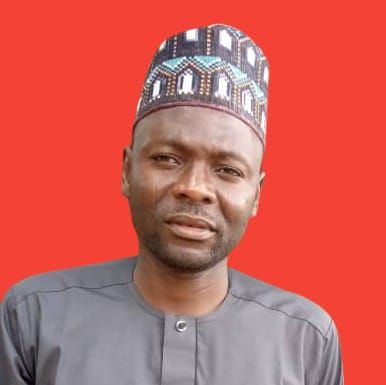By Bagudu Mohammed
In Nigeria, titles are not just decorations they are passports to respect, validation, and sometimes even unearned authority. The recent buzz surrounding the Kano singer, Dauda Kahutu (Rarara), and his supposed conferment of an honorary doctorate from a so-called European-American university, whether genuine or dubious, has once again set tongues wagging about our near sacred obsession with titles. This conversation, though sparked by one individual, has laid bare the feverish passion if not outright obsession that Nigerians attach to certificates, particularly the glamorous “Doctor” before a name. Politicians and leaders have, for decades, indulged this appetite by collecting honorary degrees from universities in Ghana, Togo, Benin Republic, and even institutions of questionable credibility.
Mark Zuckerberg, the billionaire founder of Facebook, introduces himself simply as Mark. If he were Nigerian an Igbo man precisely his name might have transformed into: Chief Engineer Architect Programmer Mark Chukwuebuka Zuckerberg (BSc, HOD, MAC, VC, PhD, KSM, NTA, GCFR, HIV, NBA, PTA, Eze gburugburu 1 of Facebook, Eti Okwe Erie Okwe of Instagram, Odogwu WhatsApp 1 of London, Ome na Dollar na Europe, Olimiri Ego N’ekwu 1, Nwa Anayoeze Osi ka Ocheeche).
The satire drew laughter but also stung with truth. As Yusuf Idrisa quickly countered, it is not an Igbo affair alone; Nigerians of every tribe are guilty. In fact, the social hunger for titles has become so universal that prefixes are now invented or stretched until they sound like parodies of themselves. What should be symbols of achievement have instead become props of validation.
Here lies the paradox: I have no quarrel with a university conferring an honorary doctorate on a musician like Rarara. Recognition, after all, is not only earned in classrooms or laboratories. True honour can emerge from music, business, sports, enterprise, or community service any space where one’s gifts transform lives. As Max Weber argued in his theory of social action, recognition in society often arises not from legal-rational authority but from charisma and the demonstrable impact of one’s work. If an artist’s melodies have moved millions, is that not as worthy of applause as an academic thesis?
Yet, the controversy is revealing. Whether the doctorate was authentic or not, the spectacle of its reception the celebrations, the pride, the headlines showed how deeply our society esteems titles. The danger is when this esteem mutates into desperation. Our reverence for certificates has fueled exam malpractice, fake degrees, and the proliferation of quack institutions. It has even pressured those who do not need certificates to chase them compulsively, just to “belong” or escape the subtle contempt of being “unlettered.” I have seen Kano traders hang certificates in their shops not because they needed them, but because respect demanded it.
This obsession, however, is quietly killing talent. A carpenter, plumber, or tailor who once thrived in their craft now abandons it after acquiring a degree in accounting or business administration not out of passion, but out of pressure to “upgrade.” Pierre Bourdieu’s concept of “symbolic capital” explains this well: degrees and titles are seen as cultural currency, conferring honour in a way that even skill and excellence cannot. The result? Many abandon their God-given talents for government jobs they scarcely desire, swelling the ranks of the unemployed while neglecting the very crafts that once sustained them.
But let us be fair. Not all attachment to titles is vain. Sometimes, titles carry genuine weight in shaping identity and credit. Consider the team of pharmaceutical chemists from Usman Dan Fodio University, Sokoto, led by Dr. Amina Yusuf Jega, whose research into curing brain cancer was recently tested in American laboratories with remarkable results. When the media reported it, however, the credit was mistakenly ascribed to “doctors” implying physicians rather than pharmacists. A commentator lamented that unless pharmacists boldly use their professional titles, their contributions will always be overshadowed by others. In such cases, titles become shields of visibility, ensuring credit reaches the right discipline.
Still, when titles overshadow substance, problems emerge. Too often, Nigerians parade PhDs, MScs, or “Chiefs” not as identifiers but as shields against criticism, as though an argument is valid simply because it comes from “Dr. So-and-So.” This tendency echoes what Erving Goffman described as “impression management” using symbols to control how others perceive us. But substance should outshine symbols. Aliko Dangote, Africa’s richest man, carries no academic suffixes, yet his impact on economies speaks louder than any degree could. Likewise, Mother Teresa, Malala Yousafzai, and Oprah Winfrey carried influence without clinging to elaborate formalities. Their lives demonstrate that respect flows not from prefixes but from performance.
Across history, the most influential figures often shunned ceremonial titles. Mark Zuckerberg remains “Mark.” Steve Jobs was simply “Steve.” Nelson Mandela chose to be called “Madiba” rather than a litany of political honors. Mahatma Gandhi was “Bapu,” not “Barrister Gandhi.” Even Albert Einstein arguably the greatest scientist of the modern era was remembered as “Einstein,” not “Professor Dr. Einstein, PhD, Nobel Laureate.” Their works, not their labels, earned immortality.
Nigerian society, however, has turned titles into tools of lobbying, packaging, and even evading scrutiny. Too often they are used not to demonstrate excellence, but to conceal mediocrity. As one Nigerian tradition wisely reminds us, university students are forbidden from writing their names on examination booklets. This simple rule ensures merit, not identity, determines judgment. If only society lived by the same ethos.
Greatness should not be defined by the prefix before a name, but by the legacy one leaves behind. True honour lies in impact, not in initials. Titles may glitter, but only substance shines.
